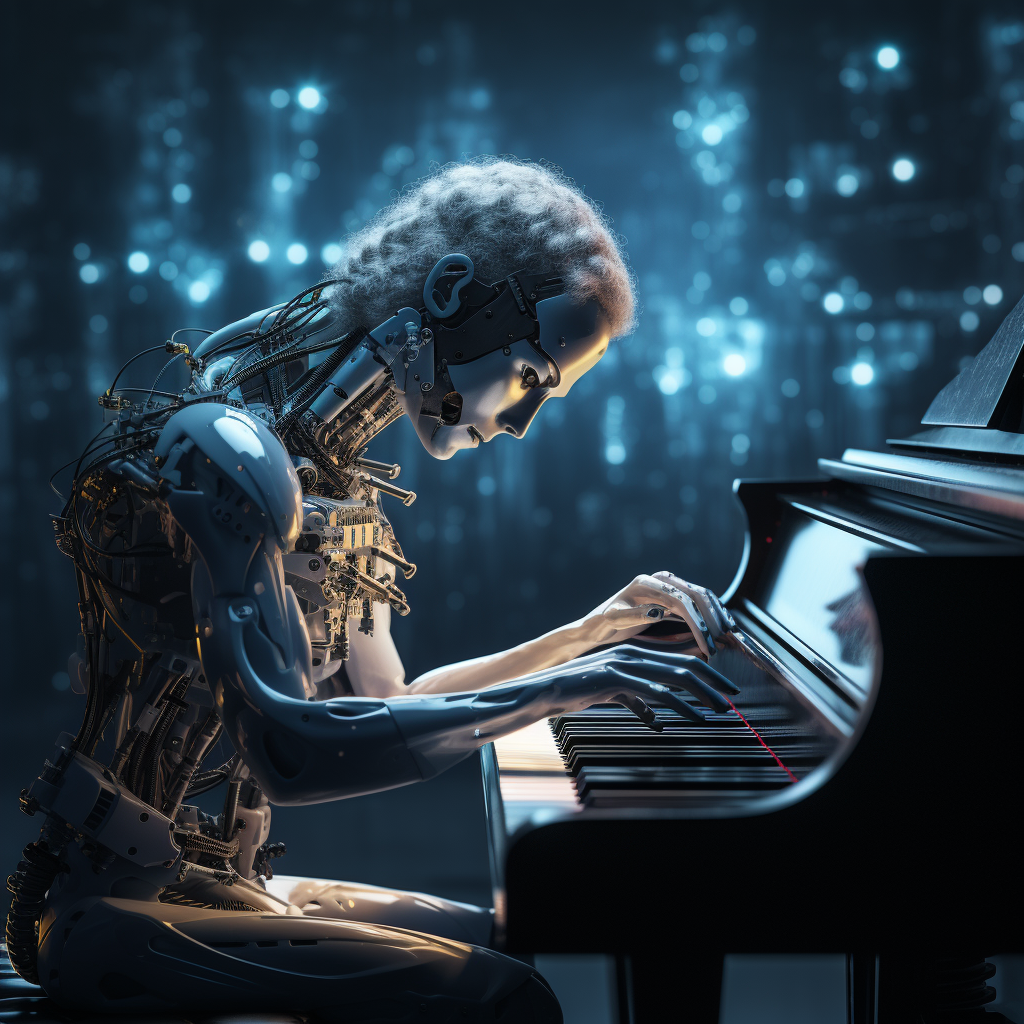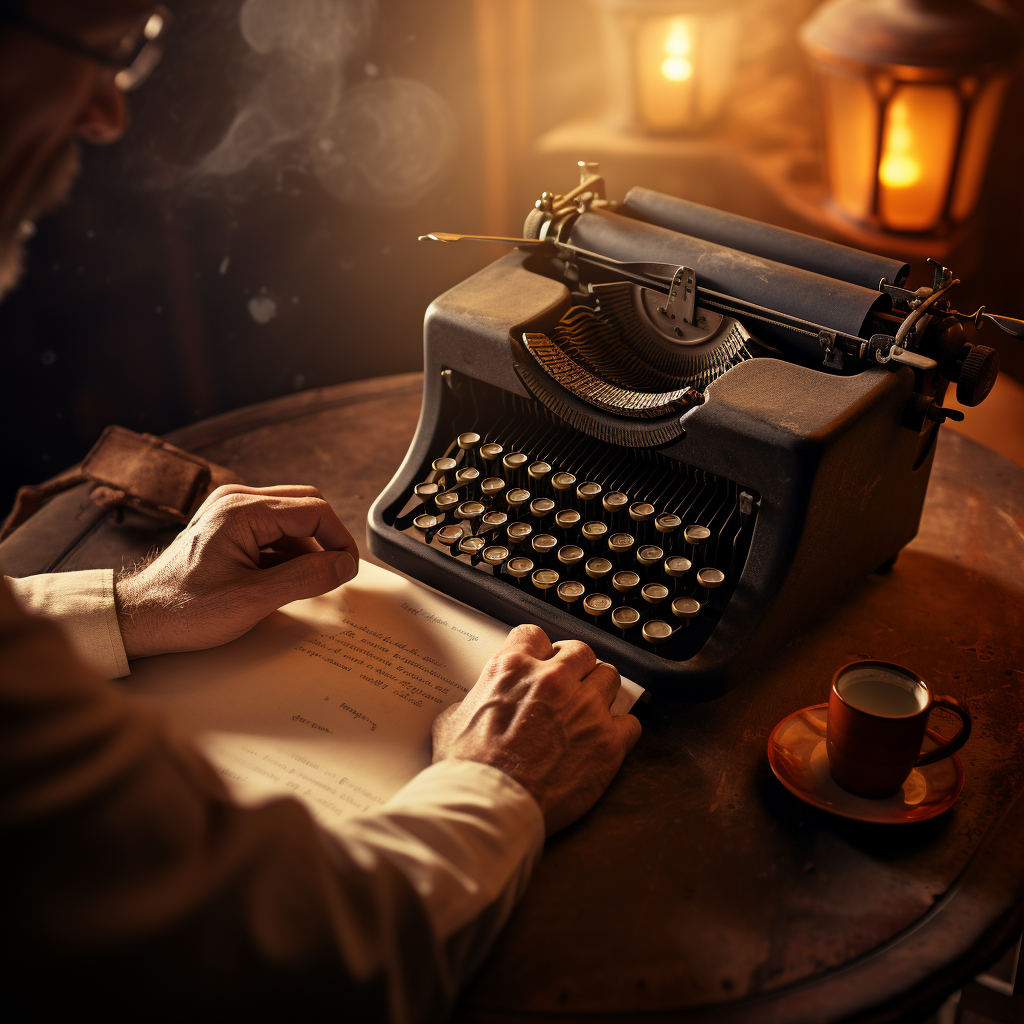
It’s on everyone’s mind – what’s AI going to do to music?
The opinion pieces out there tend to be starkly Manichean in their outlook. AI will either empower creators in ways never before imagined or destroy those professions wholesale.
At present, both of those viewpoints are true to a certain extent, but one can’t help feel the shadow of the latter looming large over most discussions.
Writers and illustrators have already had their professions impacted in a significant way with tools such as ChatGPT and Midjourney becoming as prevalent and mainstream as common household appliances.
The big question of the day is what impact AI will have on the music industry – and specifically on artists and musicians.
Currently, these folks share many of the same concerns about AI that are fueling the current Writer’s Guild of America (WGA) strike (and which was recently joined by members of SAG-AFTRA, the union representing over 160,000 film and television actors, among others. Namely, that AI is threatening to encroach into intellectual property and creative control in ways that disenfranchise those creating the actual music we love and enjoy.
These fears aren’t hypothetical either. Unlike the television industry where there hasn’t (as far as we know) been any well-received or rival productions that were entirely AI generated, the music industry has already had a couple.
Back in April, an AI-generated track that mimicked the vocals of Drake and the Weeknd went viral and was found on multiple streaming services such as YouTube and Tiktok before being taken down. Despite
Hell, just last month, there was news that a “new” Beatles song would soon be released using AI. Based off a 1978 demo using John Lennon’s voice, the AI track was spearheaded by one of two surviving Beatles’ members Paul McCartney.
So, will AI be replacing our pop stars and starlets in the near-future? In this case, I would go with most likely, and there’s a few reasons why.
1) Some music is already being replaced by AI and likely won’t go back to being produced by musicians.
If you’ve ever been put on hold during a call and heard a jingle or noticed a certain non-descript pop track in the background of an audio ad, that was likely stock music available from one repository or another.
Historically, stock music has been its own thing separate from the kind of tunes we hear being released by record labels. Most stock music is produced by musicians either creating tracks on commission, as freelancers, or just releasing tracks with a copyright that allows it to be used for commercial purposes.
While these compositions tended to be simple arrangements, often only a minute or two in length, they’ve still historically needed someone to handle the composing, arrangement, recording, and all the rest.
Nowadays, that’s already changing. While most stock music might not currently be AI produced, it almost certainly will in the next year or so.
One reason for this is because there’s no shortage of AI music generators available on the web. Sites such as Boomy, Soundful, and Soundraw, among others, offer users the tools to generate unique AI produced tracks in a variety of genres.
To be honest, some of what is produced by these isn’t half bad and doesn’t sound all that different from royalty free stock music that’s already available out there. The main difference is that where an artist might need an afternoon to put together a stock music track the traditional way, with AI it takes seconds – and each piece is unique.
And so, while you can still go to a stock music site and browse what’s available by genre, length, and all that, paying a subscription fee as is usually the case, a producer could also simply sign up for an app and create it all themselves – cutting out the middlemen.
It’s not hard to see the appeal in that, especially as it cuts down the cost and time for finding the right track. However, it does mean that the folks who have traditionally been producing royalty-free stock music are going to be facing stiff competition from AI tools and tracks alike.
2) AI is already able to produce backing tracks and instrumentation on command.
Similarly, to how we have tools to produce stock music, there’s little in the way from using those tools to create tracks that accompany an artist’s lyrics or just having someone sing over tracks spun from an AI tool.
However, the real deal is the ways in which AI plugins and tools are becoming available for the tools that producers are already using to put together their tracks.
If you do a quick search for AI tools available with FL Studios (formerly known as Fruity Loops), you’ll come across a couple of dozen plugins already available – not to mention, a whole ton of YouTube videos giving tutorials for how to blend AI into your productions.
The shortcuts these tools offer is pretty obvious – no more writing out a catchy baseline or piano to accompany your chord progression. In a couple of clicks you can have an AI churn out a few options and pick the one that goes best with what you had in mind.
As someone who creates music electronically (I’ve been using Reason on and off for the past 20 years to self-produce electronic tracks), it’s both a little disheartening and somehow empowering at the same time.
On the one hand, all the work that goes into the discovery process of putting a track together can be automated with little blood, sweat, and tears.
On the other hand, as someone who also has less free time than they used to, the idea of generating the basics with the click of the button is an appealing (if also kinda frightening) shortcut.
In any event, if tools like this exist, people will use them.
3) AI generated music is starting to flood streaming services.
Up and coming music producers, indie artists, and DIY folks like myself, have been using platforms like Soundcloud, YouTube, and even MySpace back in the day, to release music, give it a home, and hopefully find an audience.
It’s tough enough to get any attention even in a niche genre as at any point there’s hundreds, if not thousands, of others also releasing their own tracks.
AI generated tracks are going to create pure pandemonium on these platforms.
Giving anyone the ability to generate a track in under a minute means that on any given day, we’re likely going to be seeing the number of new releases skyrocket.
Sure, AI most AI tools are generally urging users to keep this music for their own projects, but there’s little to stop someone from labelling it something they self-produced and then start promoting it far and wide.
Worse, while the current tools are a little predictable in their output, and hardly as creative as even your average suburban garage band, because AI is driven by machine learning – they will learn and become more advanced, and likely more quickly than we realize.
I wouldn’t be surprised if by the end of the year, half the streaming platforms become flooded with AI compositions not clearly marked as such – and whether we will be able to even tell the difference will be up for debate.
4) The deepfakes are real, and only going to become more common.
Much like how the recent Black Mirror episode “Jane is Awful” played with the notion that actors might soon be giving up rights to their voice and image (mirroring an actual concern of SAG-AFTRA in their strike), it’s hardly a remote possibility that musicians will face the same concern.
We know that AI can already be trained to mimic an artist by listening to their recordings and be used to create convincing recordings (to circle back the case of Drake, The Weeknd, and John Lennon). So far it’s mostly been either industrial folks on the internet creating deepfakes, or surviving bandmates making the call, but how long before studios begin deciding when AI gets involved?
Let’s not forget that a few years back, 2Pac was “resurrected” as a 3D projection some time ago. It won’t require leaps and bounds to make a more autonomous 3D rendering of an artist start to compose new songs.
I strongly suspect it’s only a matter of time before contracts with record companies also start including clauses about who controls ownership not just of an artist’s current discography, but also their likeness and vocal styles.
When (and not if) we get to that point, will the listening public even care if a catchy song was produced by the original artist of an AI bot?
And even if there is an initial outcry, will it last or (like most things) will anybody even care?

